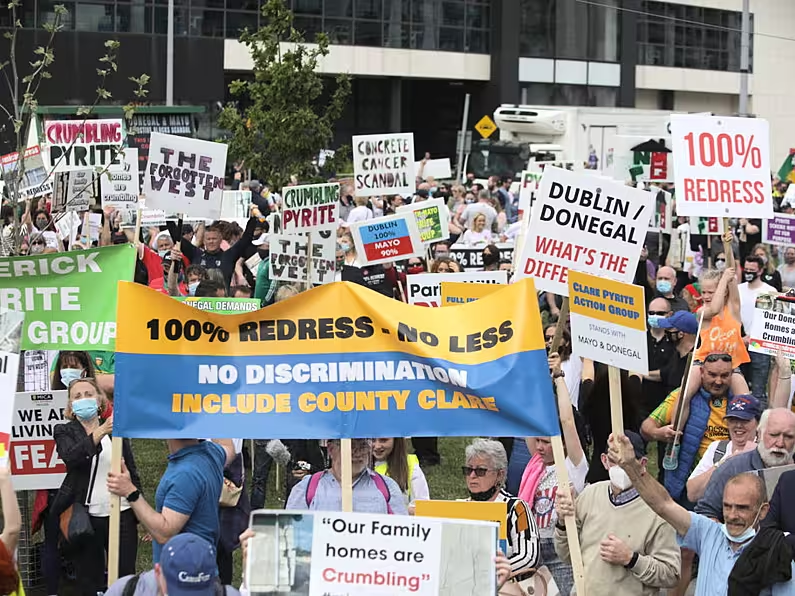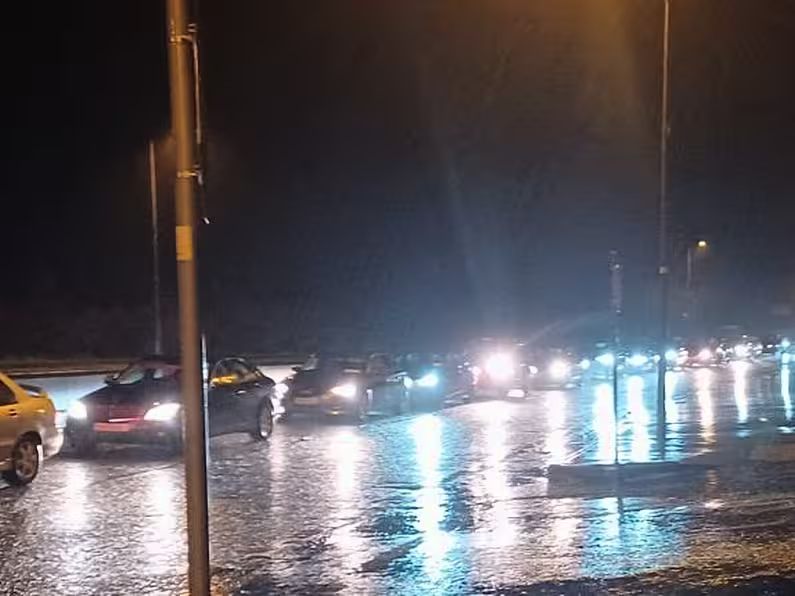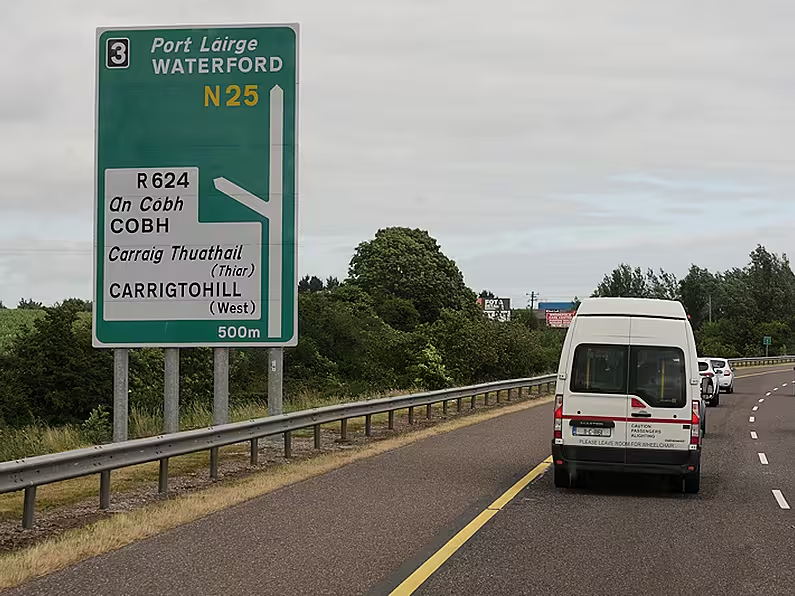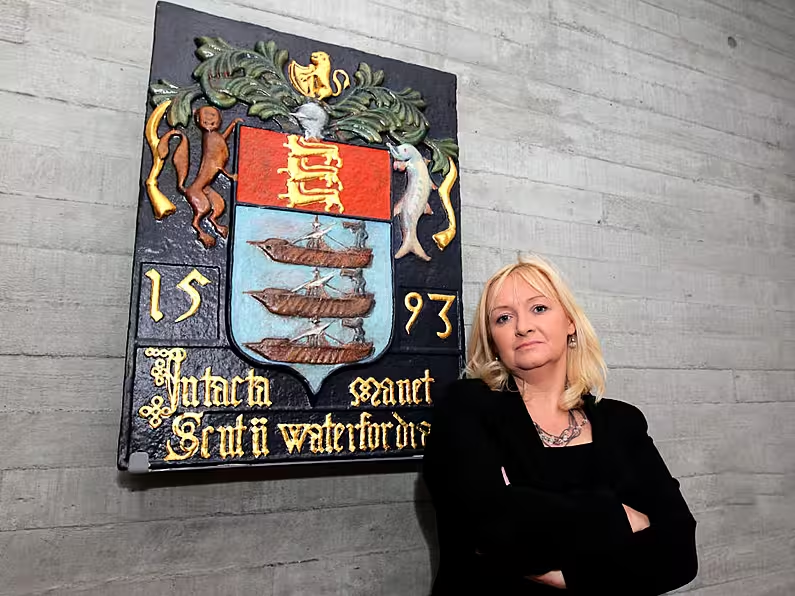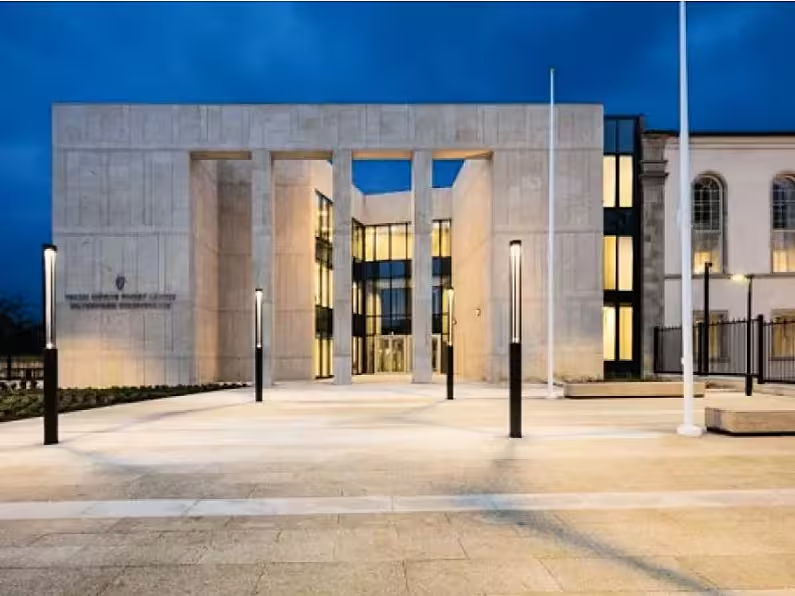Crowds have gathered to protest outside the Convention Centre in Dublin, where the Dáil is in session, with homeowners calling for a 100 per cent redress scheme to be established to repair damage caused to their properties due to mica.
But what is the issue about, and why is the State facing a very large bill to repair the damage?
What is mica?
In short, micas are minerals found in rocks. As rocks are used to produce building blocks, these micas are by extension also found in the blocks.
The mica issue surrounds muscovite, one of the most common types of mica found in quarried rock. The mica is understood to attract moisture, which then compromises the strength of the blocks causing them to crack and crumble.
Blocks impacted by this issue were widely used in the building of homes in the northwest, particularly during the Celtic Tiger, which is why so many protesters have travelled from counties such as Donegal and Mayo, however, local authorities have said such blocks were also used elsewhere, including Sligo and Clare.
If mica is in rock, how come all buildings aren't crumbling?
The issue relates to how much mica is present in the building block - the more mica present, the more susceptible it is to breakage.
A total limit of 1 per cent impurities (including pyrite and mica) is accepted for building blocks, with the Expert Panel on Concrete Blocks, which advised the National Standards Authority for its report in 2017, reiterating that 1 per cent is an acceptable limit.
However, the blocks used for properties impacted by this issue were found to have impurity levels far in excess of 1 per cent. A number of houses in Donegal, for example, were found to have impurity levels as high as 17 per cent.
Pictures 24hrs apart
Spot the difference. Last few days damp weather today the temperature is up☀️ more cracks.
Don't worry dad it will be ok ?.
Show your support.
There is no place like home. #micaredress #donegal #mica #micaactiongroup#crumblinghomes pic.twitter.com/kCUI4oWMa7— Eunan O'Doherty (@eunan_odoherty) May 29, 2021
How bad is the damage?
Very bad. Images shared on social media show some buildings with gaping cracks along exterior walls, while videos have also shown walls crumbling when touched.
As the structure of the block fails, the walls become unsafe, presenting the risk of collapse and therefore making the property a hazard. The issue has meant that some family homes are now uninhabitable, and it is estimated that approximately 10,000 homes around the country could be affected by the issue.
The Mica Action Group have also raised concerns that the defective blocks may have been used in other buildings, including schools, community centres and hospitals.
What redress is being offered?
Ahead of the last election, the Government announced a 90 per cent redress scheme to cover the costs associated with rectifying the issues.
However, homeowners impacted by mica must first pay to have the blocks of their home tested, before receiving certification to allow them to qualify for the redress scheme. These costs can amount to €5,000.
Also, planning, architect and demolition fees are not included in the redress scheme, in addition to windows and kitchens.
The 90 per cent scheme offers between €49,500-€275,000, depending on the scale of the work which is required, ranging from repairs, to all out demolition and rebuilding.
Campaigners argue these amounts are not sufficient and are therefore calling for a 100 per cent redress scheme to ensure all those who have been affected by the issue are enabled to have their property repaired.
What is the Government saying?
Last week, Government ministers were reportedly told the total cost of repairing all the properties impacted by mica is estimated to be in excess of €1 billion.
Taoiseach Micheál Martin said the Government does not want homeowners "to be at any significant disadvantage", while Tánaiste Leo Varadkar said they are "keen to find a solution".
Minister for Housing Darragh O'Brien is expected to engage with demonstrators on the matter, and has previously said he and his department are working through submissions made by the Mica Action Group and "liaising with other departments and agencies to figure out how best to address some of the concerns raised".
Meanwhile, opposition parties have supported calls for the 100 per cent redress scheme, with Sinn Féin due to bring forward a motion in the Dáil today to that effect.



